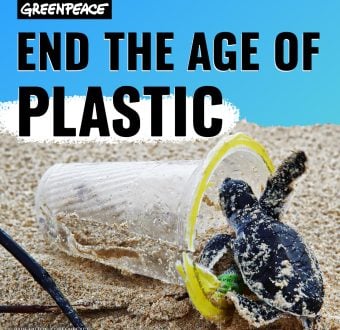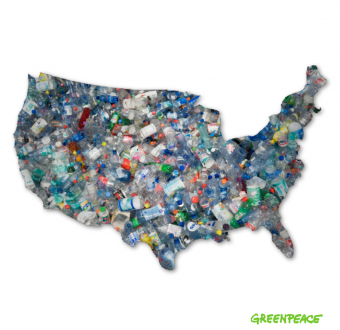Washington, DC – The plastics industry has continued its lobbying around the COVID-19 pandemic, most recently with the American Recyclable Plastic Bag Alliance (ARPBA) — a Plastics Industry Association front group — testifying in Ohio in support of an antidemocratic bill to “ban local plastic bans” for 12 months in the state. The bill passed in the Senate yesterday, and now heads to the Republican House for approval. The House had previously passed a more stringent version of the bill, which would permanently prohibit local governments from enacting bans to tackle plastic pollution.
ARPBA has worked with other industry front groups, including the American Legislative Exchange Council (ALEC), to prevent local action on plastic pollution in states across the country for years. Last year, Coca-Cola, PepsiCo, SC Johnson, and General Motors left the Plastics Industry Association following outrage from customers around the front group’s lobbying to prevent local plastic bans.
In response to the industry’s lobbying in Ohio, Greenpeace USA Oceans Campaign Director John Hocevar said:
“The plastics industry has pushed antidemocratic preemption bills for years, and is now exploiting a pandemic to expand its lobbying effort. Rather than allow local communities and governments to decide how they want to tackle plastic pollution, the industry wants to ensure unnecessary plastic bags and containers remain in widespread use to keep fossil fuel giants profitable. Turning back the clock and embracing unnecessary disposable plastics will not make people safer, but will ensure that our communities and environment face even greater crises into the future.
“Plastic industry lobbyists have sunk to a new low, claiming that we need state laws preventing cities and towns from banning plastic bags because of COVID-19 fears. The industry is fully aware that the science shows the virus survives longer on plastic than other surfaces. They see the writing on the wall for plastic bags, and are doing everything they can to prevent communities from taking action. Rather than interfering in local politics, the industry should be helping the many communities of color next to refineries, incinerators, and landfills that face disproportionate health impacts during the pandemic thanks to the continued production of its toxic product.”
The plastics industry has used the COVID-19 pandemic to increase its lobbying around the safety of single-use plastics, despite a lack of research to show that disposable plastics prevent spread of the virus. The industry has executed a PR campaign touting older, industry-funded studies to stoke fears around reusables and sent a letter to the US Department of Health and Human Services urging them to “make a public statement on the health and safety benefits seen in single-use plastics.” It has also urged elected officials to provide a $1 billion bailout for recycling infrastructure so that it can continue increasing its plastic production.
###
Contact: Perry Wheeler, Greenpeace USA Senior Communications Specialist, P: 301-675-8766


